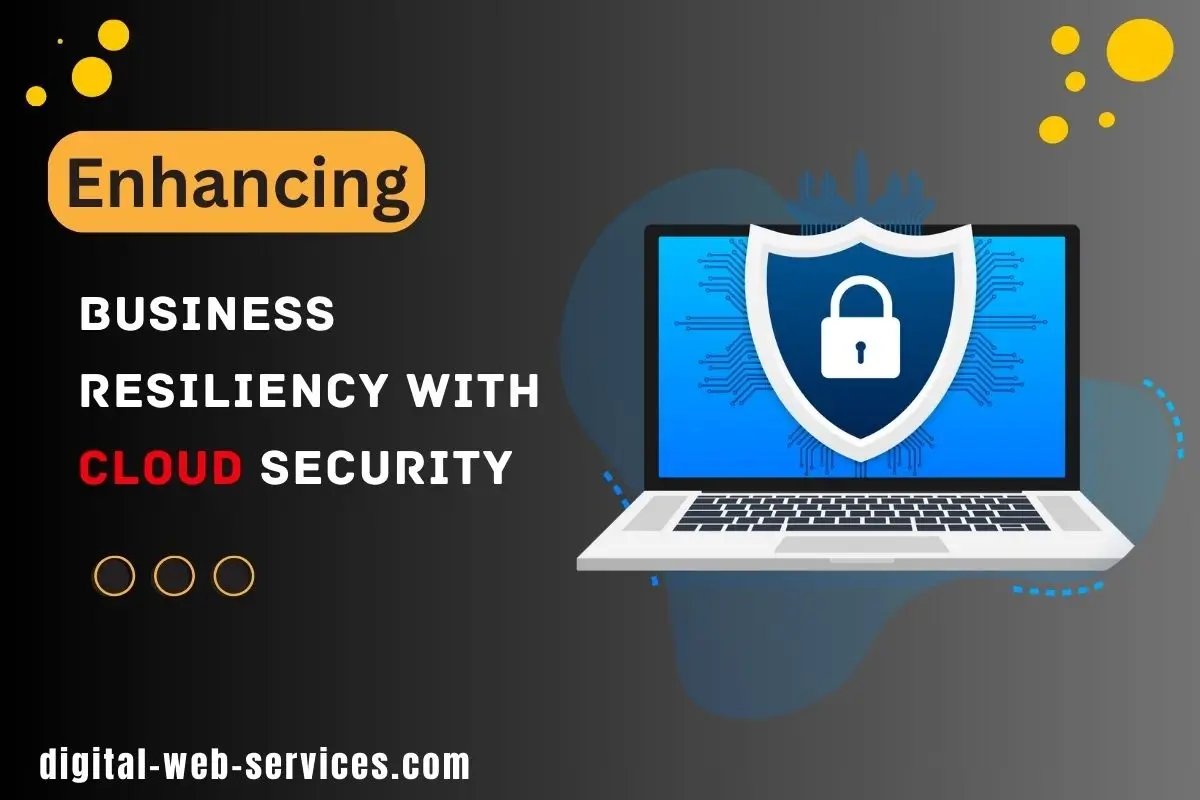
Businesses are dependent on their ability to keep their clients’ data safe. As a result, they have to rely on various kinds of security measures such as encryptions, access controls, authentication mechanisms and monitoring systems for maintaining a secure and stable cloud environment. All these security measures are integral parts of cloud security.
In this article, we will discuss what is cloud Security? and how businesses can enhance their resiliency with cloud security.
What is Cloud Security?
Cloud security a.k.a cloud computing security refers to a collection of security measures which are specifically designed to protect cloud-based applications, infrastructure and data. These security measures help to address the external and internal threats to business security.
Cloud security should be an integral part of every company’s cybersecurity no matter what their size is. Many people believe that only enterprise-sized businesses are cyberattack victims. However, small and medium-sized businesses are some of the biggest targets for malicious hackers. Cloud security not only helps businesses to protect themselves from being the victims of cyber attacks but also helps them to stay compliant when managing sensitive customer data.
Why is Cloud Security crucial for Businesses?
Due to the rise in adoption of cloud computing, companies have been entrusting their sensitive information to third-party cloud service providers. Cloud computing comes with various benefits like being flexible and cost-effective. However, there are some security challenges linked with cloud computing.
Cloud security helps in data protection which is one of its most important features. Businesses store significant amounts of sensitive data in the cloud, such as customer information, financial records and intellectual property. If no appropriate security measures are taken, this sensitive data becomes vulnerable to data breaches, unauthorized access and theft. These cyber threats can not only cause financial loss but also reputational damage which can set most businesses back to a great extent. Establishing a business requires a lot of hardwork and dedication. Watching it fall due to falling prey to the hackers isn’t anything any business owner would ever want.This is why it is extremely important to have a cloud security strategy that’ll ensure that your business continues to harness the benefits of cloud computing.
How does Cloud Security work?
Generally, cloud security takes place with the responsibility for security measures being shared between the business’s internal IT team and a cloud security provider (CSP). A CSP is someone who is a third-party vendor offering cloud security solutions to companies who need assistance in protecting their clients’ sensitive data, applications and infrastructure in cloud.
Additionally, establishing a clear email retention policy is crucial as it helps organizations manage and secure email communications effectively, ensuring compliance with legal and regulatory requirements while minimizing the risk of data overload.
The responsibility for the core infrastructure of the cloud lies with CSPs. However, it’s the companies that are accountable for ensuring infrastructure, network controls, identity and access management are secured in the cloud. In case a business doesn’t have any in-house resources to share these responsibilities, it can ask the CSP to take care of everything entirely.
What are the Benefits of Cloud Security?
Having a cloud security strategy in place offers numerous benefits. Organizations get centralized visibility of all cloud resources by incorporating a cloud-based, single-stack security. This enables security teams to be better aware of instances where malicious hackers are attempting an attack. A strong security provider, by default, provides data security with measures like the encryption of data in transit, access control and a data loss prevention plan to make the cloud environment as secure as possible. Since cloud environments can be exposed to numerous vulnerabilities, companies generally have many cloud security frameworks in place to ensure their product is in compliance with the local and international regulations pertaining to the sensitive data’s privacy. It is clear that the benefits of cloud security are one of a kind. Hence, they should be availed as much as possible by the businesses for their own good.
Conclusion
Cloud security is a crucial component of modern business operations. It enhances business resiliency by providing protection against various cyber threats thereby, ensuring operational continuity. With ever-evolving tactics of hackers, it is clear that protecting the cloud resources is an ongoing battle. However, businesses in the 21st century cannot let go of the benefits associated with cloud computing such as enhanced flexibility, scalability and remote work capabilities. Therefore, to ensure that businesses continue to reap the benefits of cloud computing while remaining secure, implementing cloud security is quintessential. Businesses should not think of cloud security as an option but a necessity.
Digital Web Services (DWS) is a leading IT company specializing in Software Development, Web Application Development, Website Designing, and Digital Marketing. Here are providing all kinds of services and solutions for the digital transformation of any business and website.










